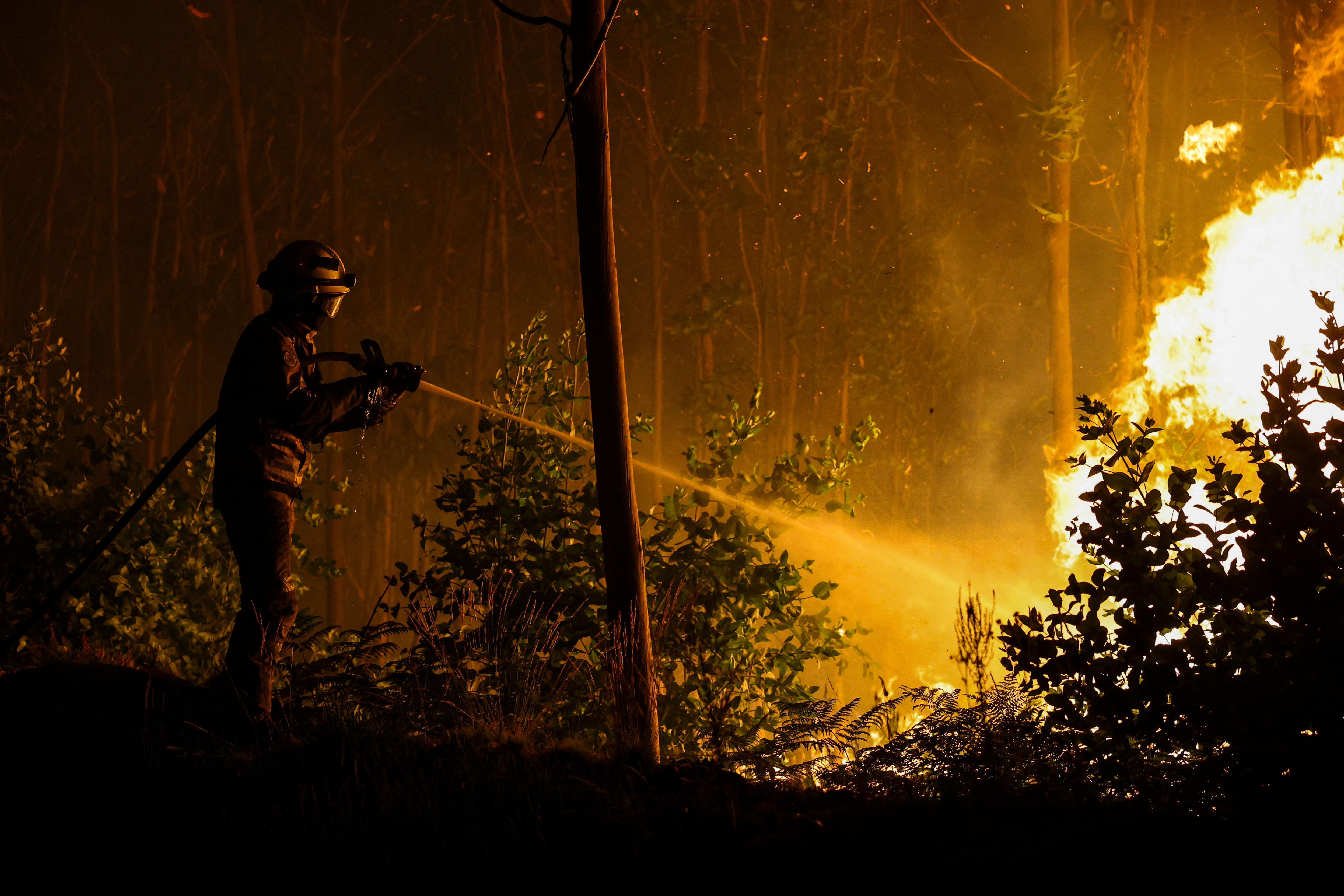Thousands of firefighters across Spain and Portugal are battling an ongoing wave of wildfires, some of which have been burning for days, as temperatures are set to rise further across the Iberian Peninsula.
In central Spain, firefighters and a special military unit worked overnight to control blazes in Avila province, focusing on a fire near El Arenal, about 100km (62 miles) west of Madrid, emergency services said. In the western province of Caceres, authorities reported a fire affecting some 2,500 hectares (roughly 6,178 acres) had been largely stabilised, with most evacuation orders lifted.
Meanwhile, in Portugal, more than 2,000 firefighters are deployed across the country, particularly in the north, as they continue to tackle widespread blazes.
Much of Spain and Portugal is under a high risk of wildfires and temperatures are expected to rise over the weekend.

Spain’s meteorology service AEMET predicted that temperatures in central and southern Spain could exceed 40 degrees Celsius (104 degrees Fahrenheit) by Sunday. In Portugal, temperatures are expected to rise Saturday into the upper 30s Celsius across most of the country.
Despite record-high temperatures in June that topped 40 degrees Celsius on several days, wildfires in Spain this year have so far burned less surface area than in recent years.
Europe is the world’s fastest-warming continent, with temperatures increasing at twice the speed as the global average since the 1980s, according to the European Union’s Copernicus Climate Change Service.
Scientists warn that climate change is exacerbating the frequency and intensity of heat and dryness, especially in southeastern Europe, making the region more vulnerable to wildfires.
The burning of fuels like gasoline, oil and coal, plus deforestation, wildfires and many kinds of factories release heat-trapping gasses that cause climate change.




